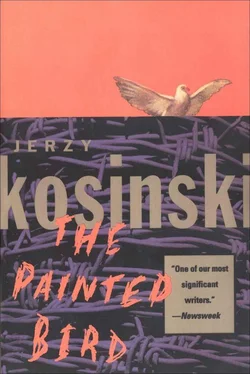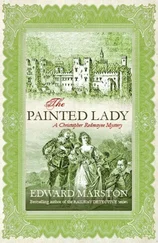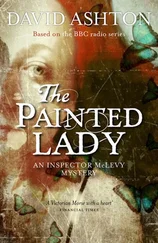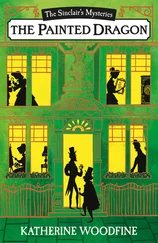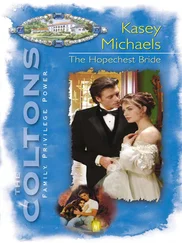Jerzy Kosiński - The Painted Bird
Здесь есть возможность читать онлайн «Jerzy Kosiński - The Painted Bird» весь текст электронной книги совершенно бесплатно (целиком полную версию без сокращений). В некоторых случаях можно слушать аудио, скачать через торрент в формате fb2 и присутствует краткое содержание. Год выпуска: 1965, ISBN: 1965, Жанр: Детская проза, на английском языке. Описание произведения, (предисловие) а так же отзывы посетителей доступны на портале библиотеки ЛибКат.
- Название:The Painted Bird
- Автор:
- Жанр:
- Год:1965
- ISBN:978-0-8021-9575-3
- Рейтинг книги:4 / 5. Голосов: 1
-
Избранное:Добавить в избранное
- Отзывы:
-
Ваша оценка:
- 80
- 1
- 2
- 3
- 4
- 5
The Painted Bird: краткое содержание, описание и аннотация
Предлагаем к чтению аннотацию, описание, краткое содержание или предисловие (зависит от того, что написал сам автор книги «The Painted Bird»). Если вы не нашли необходимую информацию о книге — напишите в комментариях, мы постараемся отыскать её.
The Painted Bird — читать онлайн бесплатно полную книгу (весь текст) целиком
Ниже представлен текст книги, разбитый по страницам. Система сохранения места последней прочитанной страницы, позволяет с удобством читать онлайн бесплатно книгу «The Painted Bird», без необходимости каждый раз заново искать на чём Вы остановились. Поставьте закладку, и сможете в любой момент перейти на страницу, на которой закончили чтение.
Интервал:
Закладка:
The hut contained a single enormous bed that could easily accommodate three people. Between one edge of this bed and the wall there was a wide space where Labina had piled sacks, old rags, and sheepskins, thus providing me with a place to sleep. I always went to sleep before the guests arrived, but I was often awakened by their singing and boisterous toasts. But I pretended to be asleep. I did not wish to risk the beating Labina often halfheartedly said I deserved. With eyes nearly closed I would watch what was happening in the room.
A drinking bout would begin and last far into the night. Usually one man would stay after the others had left. He and Labina would sit down against the warm oven and drink from the same cup. When she would sway uncertainly and lean toward the man, he would place a huge blackened hand on her flabby thighs and slowly move it under her skirt.
Labina at first seemed indifferent, then struggled a little. The man’s other hand slid from beneath her neck down inside her blouse, squeezing her breasts so hard that she uttered a cry and panted hoarsely. At times the man kneeled on the floor and pushed his face aggressively into her groin, biting it through the skirt while squeezing her buttocks with both his hands. Often he would strike her groin abruptly with the edge of his hand and she would bend over and moan.
The candle was put out. They would undress in the dark, laughing and cursing, stumbling over the furniture and each other, impatiently shedding their clothing, overturning bottles that would roll across the room. When they tumbled onto the bed I feared it would collapse. While I thought of the rats who lived with us, Labina and her guest tossed about in the bed, wheezing and fighting, calling on God and Satan, the man howling like a dog, the woman grunting like a pig.
Often, in the middle of the night, in the midst of my dreams, I suddenly awoke on the floor between the bed and the wall. The bed quivered above me; shifted by the bodies struggling in convulsive fits. Finally it began to move over the tilted floor toward the center of the room.
Unable to crawl back into the bed from which I fell, I had to sneak under it and push it back against the wall. Then I returned to my pallet. The dirt floor under the bed was cold and moist and covered with cat feces and the remains of birds they had dragged in. As I inched in the dark I tore at thick cobwebs and the frightened spiders ran over my face and hair. Warm little bodies of mice fled to their holes, brushing against me as they passed.
Touching this dark world with my flesh always filled me with revulsion and fear. I would crawl out from under the bed, wipe the cobwebs off my face, and wait shivering for the proper moment to push the bed back toward the wall.
Gradually my eyes adjusted to the darkness. I looked on while the great sweating body of the man mounted the trembling woman. She embraced his fleshy buttocks with her legs which resembled the wings of a bird crushed under a stone.
The peasant groaned and sighed heavily, gathered up the woman’s body under his hand, raised himself, and with the back of his hand struck her breasts. They flapped loudly like a wet cloth being beaten against a rock. He swooped down on her and flattened her to the bed. Labina, crying incoherently, struck his back with her hands. Sometimes the man lifted the woman, forced her to kneel on the bed leaning on her elbows, and he mounted her from the back, beating her rhythmically with his belly and thighs.
I looked on with disappointment and disgust at the two intertwined, twitching human frames. So that’s what love was: savage as a bull prodded with a spike; brutal, smelly, sweaty. This love was like a brawl in which man and woman wrested pleasure from each other, fighting, incapable of thought, half stunned, wheezing, less than human.
I recalled the moments I had passed with Ewka. How differently I treated her. My touch was gentle; my hands, my mouth, my tongue, hovered consciously over her skin, soft and delicate like gossamer floating in windless warm air. I continually sought out new sensitive places unknown even to her, bringing them to life with my touch, as rays of sunshine revive a butterfly chilled by the cool air of the autumn night. I remembered my elaborate efforts and how they released within the girl’s body some yearnings and tremors that otherwise would have been imprisoned there forever. I freed them, wanting her only to find pleasure in herself.
The loves of Labina and her guests were soon over. They were like short spring thundershowers that wet the leaves and grass but never reach the roots. I remembered how my games with Ewka never really ceased but only dimmed when Makar and Quail intruded into our lives. They continued long into the night like a peat fire whipped gently by the wind. Yet even this love was extinguished as fast as burning logs are smothered with a shepherd’s horse blanket. As soon as I became temporarily incapable of playing with her, Ewka forgot me. To the warmth of my body, the tender caress of my arms, the gentle touch of my fingers and my mouth, she preferred a stinking hairy goat and his loathsome deep penetration.
Finally the bed stopped quivering and the slackened carcasses, sprawling there like slaughtered cattle, settled into sleep. Then I pushed the bed back to the wall, climbed over it, and lay down in my cold corner, pulling all the sheepskins over me.
On rainy afternoons Labina grew melancholic and talked about her husband, Laba, who was no longer alive. Many years ago Labina had been a beautiful girl whom the richest peasants wooed. But against reasoned advice she fell in love with and married Laba, the poorest farmhand in the village, known also as the Handsome One.
Laba indeed was handsome, tall as a poplar, nimble as a top. His hair shone in the sun, his eyes were bluer than the fairest sky, and his complexion was as smooth as a child’s. When he looked at a woman her blood ran fire and lustful thoughts raced through her head. Laba knew that he was good-looking and that he aroused admiration and lust in women. He liked to parade about the woods and bathe in the pond naked. He would glance into the bushes and know that he was being watched by young virgins and married women.
But he was the poorest farmhand in the village. He was hired by the rich peasants and had to endure many humiliations. These men knew that Laba was desired by their wives and daughters, and they would humble him for it. They also bothered Labina, knowing that her penniless husband depended on them and could only look on helplessly.
One day Laba did not return home from the field. He did not return the next day, or the day after. He vanished like a stone dropped to the bottom of a lake.
It was thought that he was drowned or sucked in by a swamp, or that some jealous suitor had knifed him and buried him at night in the forest.
Life went on without Laba. Only the saying, “handsome as Laba,” survived in the village.
A lonely year without Laba passed. People forgot him, and only Labina believed that he was still alive and would return. One summer day, when the villagers rested in the short shadows of the trees, a cart pulled by a fat horse emerged from the forest. On the cart lay a large chest covered by a cloth, and next to it walked Handsome Laba in a beautiful leather jacket slung Hussar-fashion over his shoulders, in trousers of the finest cloth and in tall shining boots.
The children ran among the huts, carrying the news, and men and women swarmed toward the road. Laba greeted them all with a nonchalant wave, while wiping the sweat off his brow and prodding the horse.
Labina was already waiting in the doorway. He kissed his wife, unloaded the enormous chest, and entered the hut. The neighbors gathered in front admiring the horse and cart.
Читать дальшеИнтервал:
Закладка:
Похожие книги на «The Painted Bird»
Представляем Вашему вниманию похожие книги на «The Painted Bird» списком для выбора. Мы отобрали схожую по названию и смыслу литературу в надежде предоставить читателям больше вариантов отыскать новые, интересные, ещё непрочитанные произведения.
Обсуждение, отзывы о книге «The Painted Bird» и просто собственные мнения читателей. Оставьте ваши комментарии, напишите, что Вы думаете о произведении, его смысле или главных героях. Укажите что конкретно понравилось, а что нет, и почему Вы так считаете.
